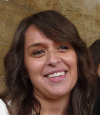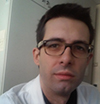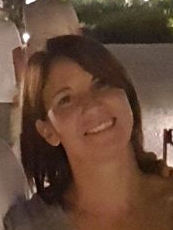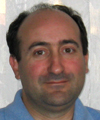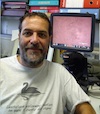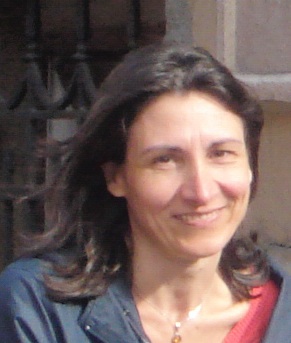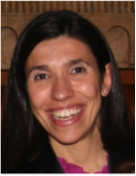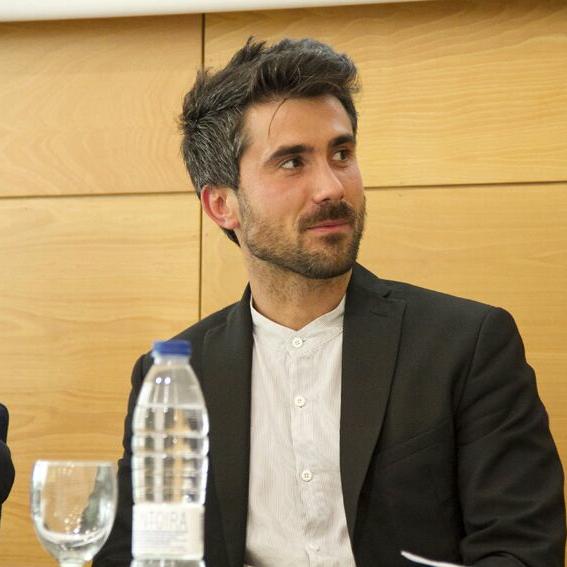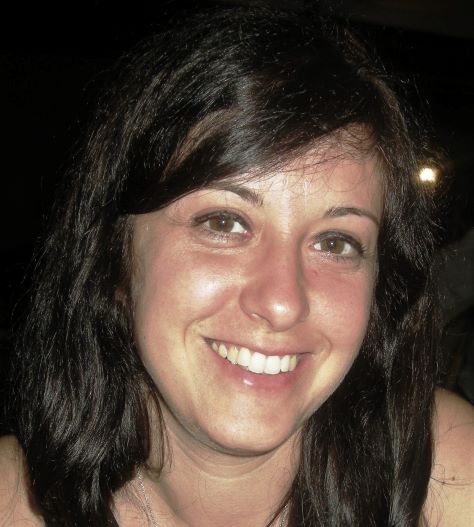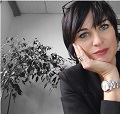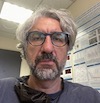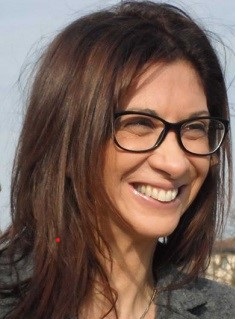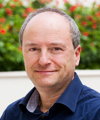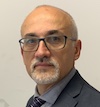Studying at the University of Verona
Here you can find information on the organisational aspects of the Programme, lecture timetables, learning activities and useful contact details for your time at the University, from enrolment to graduation.
Academic calendar
The academic calendar shows the deadlines and scheduled events that are relevant to students, teaching and technical-administrative staff of the University. Public holidays and University closures are also indicated. The academic year normally begins on 1 October each year and ends on 30 September of the following year.
Course calendar
The Academic Calendar sets out the degree programme lecture and exam timetables, as well as the relevant university closure dates..
| Period | From | To |
|---|---|---|
| I sem. | Oct 2, 2017 | Jan 31, 2018 |
| II sem. | Mar 1, 2018 | Jun 15, 2018 |
| Session | From | To |
|---|---|---|
| Sessione invernale d'esame | Feb 1, 2018 | Feb 28, 2018 |
| Sessione estiva d'esame | Jun 18, 2018 | Jul 31, 2018 |
| Sessione autunnale d'esame | Sep 3, 2018 | Sep 28, 2018 |
| Session | From | To |
|---|---|---|
| Sessione di laurea estiva | Jul 11, 2018 | Jul 11, 2018 |
| Sessione autunnale | Nov 21, 2018 | Nov 21, 2018 |
| Sessione di laurea invernale | Mar 13, 2019 | Mar 13, 2019 |
| Period | From | To |
|---|---|---|
| Christmas break | Dec 22, 2017 | Jan 7, 2018 |
| Easter break | Mar 30, 2018 | Apr 3, 2018 |
| Patron Saint Day | May 21, 2018 | May 21, 2018 |
| VACANZE ESTIVE | Aug 6, 2018 | Aug 19, 2018 |
Exam calendar
Exam dates and rounds are managed by the relevant Science and Engineering Teaching and Student Services Unit.
To view all the exam sessions available, please use the Exam dashboard on ESSE3.
If you forgot your login details or have problems logging in, please contact the relevant IT HelpDesk, or check the login details recovery web page.
Should you have any doubts or questions, please check the Enrollment FAQs
Academic staff
 maurizio.boscaini@univr.it
maurizio.boscaini@univr.it
Pintossi Chiara
 chiara.pintossi@univr.it
chiara.pintossi@univr.it
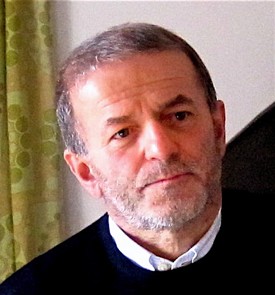
Vallini Giovanni
 giovanni.vallini@univr.it
giovanni.vallini@univr.it
 045 802 7098; studio dottorandi: 045 802 7095
045 802 7098; studio dottorandi: 045 802 7095
Study Plan
The Study Plan includes all modules, teaching and learning activities that each student will need to undertake during their time at the University.
Please select your Study Plan based on your enrollment year.
1° Year
| Modules | Credits | TAF | SSD |
|---|
2° Year activated in the A.Y. 2018/2019
| Modules | Credits | TAF | SSD |
|---|
3° Year activated in the A.Y. 2019/2020
| Modules | Credits | TAF | SSD |
|---|
One course to be chosen among the followingOne course to be chosen among the following| Modules | Credits | TAF | SSD |
|---|
| Modules | Credits | TAF | SSD |
|---|
| Modules | Credits | TAF | SSD |
|---|
One course to be chosen among the followingOne course to be chosen among the followingLegend | Type of training activity (TTA)
TAF (Type of Educational Activity) All courses and activities are classified into different types of educational activities, indicated by a letter.
Bioinformatics and biological databases (2018/2019)
Teaching code
4S02701
Teacher
Coordinator
Credits
6
Language
Italian
Scientific Disciplinary Sector (SSD)
BIO/10 - BIOCHEMISTRY
Period
II semestre dal Mar 4, 2019 al Jun 14, 2019.
Learning outcomes
The course aims to introduce the student to bioinformatics, providing basic notions basically focused on the analysis of both nucleotide and protein sequences. The course will provide both theoretical and practical bases of algorithms, programs and methods for searching and analyzing sequence data contained in biological databases.
At the end of the course students will be able to:
Navigate among different biological databases and know how and where retrive the data
Analyze sequence data by searching similarity in database
Compare, analyze and manage sequence data using different types of programs for sequence alignments.
Program
1. Introduction to bioinformatics
2. Biological databases: primary and secondary databases, search methods in biological databases.
3. Substitution matrix BLOSUM and PAM
4. Introduction to pairwise sequence alignment: dot matrix, algorithm based on dynamic programming (Smith-Watermann, Needlman-Wunsch) , heuristic programs (BLAST and FASTA)
5. Multiple alignments: introduction to multiple alignment algoritms (clustalW and T-Coffee). Positional weight matrices, PSI-BLAST and methods based on Hidden Markov Model (HMM)
6. Introduction to phylogenetic analysis and phylogenetic trees
7. Structural biology: computational methods to study secondary and tertiary protein structure.
| Author | Title | Publishing house | Year | ISBN | Notes |
|---|---|---|---|---|---|
| Stefano Pascarella e Alessandro Paiardini | Bioinformatica | Zanichelli | 2011 | 9788808062192 |
Examination Methods
The exam consists of a written verification (usually six open question about theory and one question about the laboratory part) of the level of knowledge regarding the argument of the course. The student must demonstrate understanding of the method and application of the major bioinformatic programs and approaches learned during the course. The student will also have to demonstrate how to interpret the results of the programs studied during the course.
Type D and Type F activities
Modules not yet included
Career prospects
Module/Programme news
News for students
There you will find information, resources and services useful during your time at the University (Student’s exam record, your study plan on ESSE3, Distance Learning courses, university email account, office forms, administrative procedures, etc.). You can log into MyUnivr with your GIA login details: only in this way will you be able to receive notification of all the notices from your teachers and your secretariat via email and soon also via the Univr app.
Graduation
List of theses and work experience proposals
| theses proposals | Research area |
|---|---|
| Studio delle proprietà di luminescenza di lantanidi in matrici proteiche | Synthetic Chemistry and Materials: Materials synthesis, structure-properties relations, functional and advanced materials, molecular architecture, organic chemistry - Colloid chemistry |
| Multifunctional organic-inorganic hybrid nanomaterials for applications in Biotechnology and Green Chemistry | Synthetic Chemistry and Materials: Materials synthesis, structure-properties relations, functional and advanced materials, molecular architecture, organic chemistry - New materials: oxides, alloys, composite, organic-inorganic hybrid, nanoparticles |
| Dinamiche della metilazione del DNA e loro contributo durante il processo di maturazione della bacca di vite. | Various topics |
| Risposte trascrittomiche a sollecitazioni ambientali in vite | Various topics |
| Studio delle basi genomico-funzionali del processo di embriogenesi somatica in vite | Various topics |
Attendance
As stated in the Teaching Regulations for the A.Y. 2022/2023, attendance is not mandatory. However, professors may require students to attend lectures for a minimum of hours in order to be able to take the module exam, in which case the methods that will be used to check attendance will be explained at the beginning of the module.

